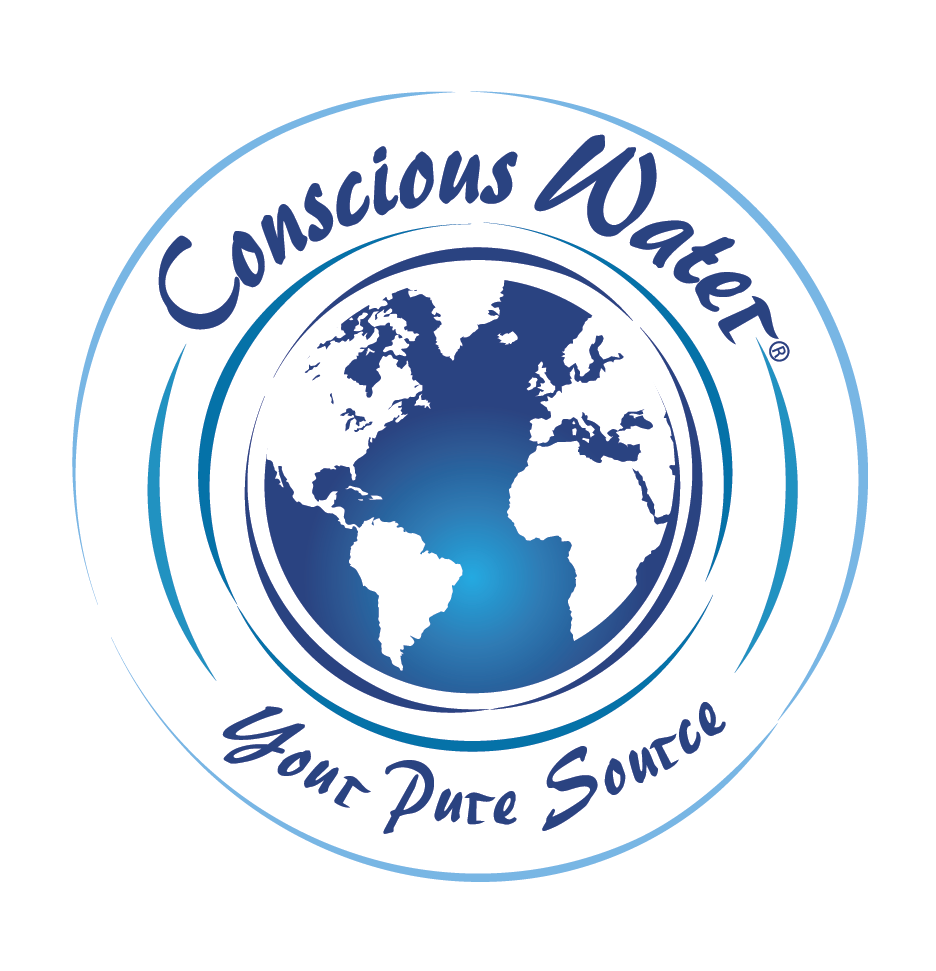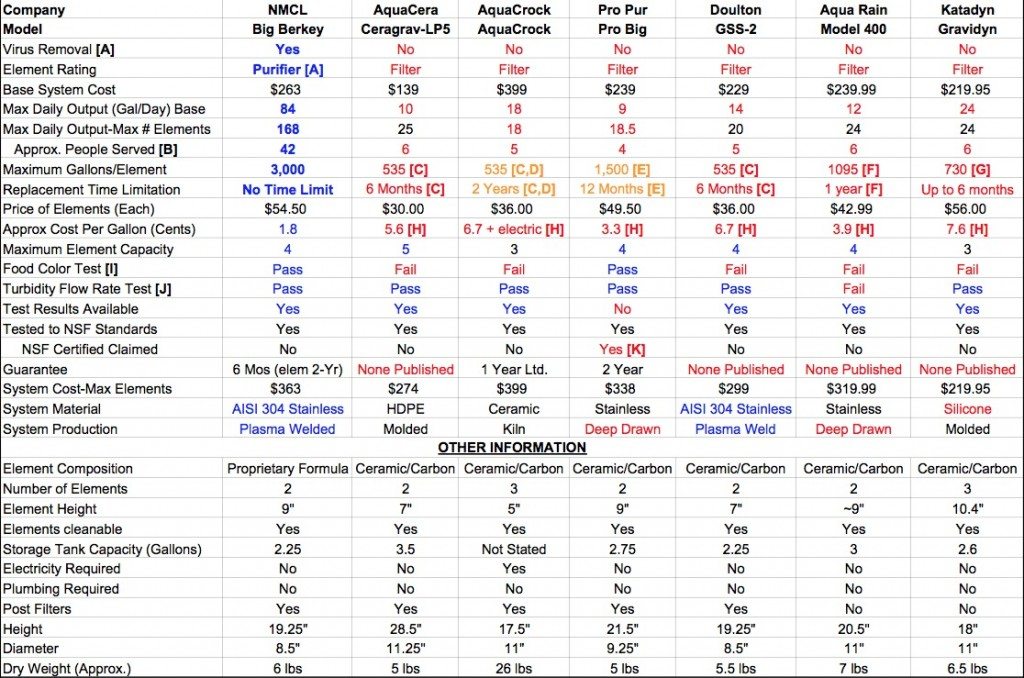Gravity Water Filter/Purifier Comparison Chart
We often hear, “Tell me about Berkey vs Propur”. As you will see below, the Big Berkey is more powerful than all the others as it removes Viruses >99.99% (this is why it is called a Purifier, not a Filter), has a much faster rate of purification, and is the most economical system. Also, Berkey’s history dates back to the 1830’s and they have been used worldwide ever since.
NOTE: The chart below is in USD and is out of date. It will still be helpful for you.
1 Gallon = 3.8 Liters.
Chart compiled by berkeywater.com on 5/15/12.
Propur vs Berkey
NOTES:
[A] = Purification Standards: Element must remove/inactivate all types of pathogenic organisms. Specifically, element must remove two species of virus to 4 Log10 (=>99.99%) and remove pathogenic bacteria to 6 Log10 (=> 99.9999%) and remove cysts to 3 Log10 (=> 99.9%). This makes Berkey systems the only true gravity fed purification systems.
Purification Challenge: The Standard has selected 3 types of challenge organisms: Bacteria (Klebsiella terrigena), Viruses (Polio and Rota) and Protozoan Cysts (Giardia or Cryptosporidium).
VIROLOGY – Demonstration of a 4 Log10 (99.99%) reduction is required on the combined polio/rota virus challenge matrix. BACTERIOLOGY – Demonstration of a 6 Log10 (99.9999%) reduction is required for the Klebsiella terrigena bacterial challenge. CYST REMOVAL – Demonstration of a 3 Log10 (99.9%) reduction is required for the cysts using Cryptosporidium or Giardia.
[B] = Number based on 2 gallons per day per person, system used 12 hours per day.
[C] = Aqua Crock, Doulton GSS-2, Ceragrav LP-5 all use Doulton Filter Elements – life expectancy is 525 gallons or 6 months, whichever occurs first.
[D] = Claim made is 2 years or 3,000 gallons; while the manufacturer of their Doulton filter elements states the life expectancy is 535 gallons or 6 months whichever occurs first.
[E] = While the company claims their elements will last for 3,000 gallons on their comparison chart, we used the claims of the manufacturer, which state that the life of the elements is only 1,500 gallons or 12 months whichever occurs first.
[F] = Calculation based on each element producing 3 gallons when used for 12 hours per day during 365 day maximum recommended time limitation.
[G] = Calculation based on each element producing 12 gallons if used for 12 hours per day during 182 day maximum recommended time limitation.
[H] = Cost per gallon presumes maximum gallon claims reached prior to “replacement time limitation” above and calculated based on “max daily output” above, whichever is less or occurs first.
[I] = Successfully demonstrates removal of microscopic red food coloring particulate from source water at 1 tablespoon of red food coloring per gallon.
[J] = Test is designed to determine if high turbidity (larger particulate) source water will clog up elements which may render them ineffective during actual emergency conditions. 1 tbsp carbon dust per gallon. Flow rate reduction of <25%=Pass, >25%=Fail.
[K] = NSF Claims: No listing on NSF website as of publication date. NSF has confirmed that ProPur has not been certified by their organization
Where information was available and published, this information was used. Where information was not available, information was calculated, such as in F and L above, using the available published information. Where published information on systems was in conflict with the published information by the manufacturer, such as in C, D, and E above, items are highlighted in orange.
Data based on manufacturer’s life expectancy claims rather than the claims of the manufacturer’s customer. Information collected from websites, corporate literature, internal testing and outside independent sources is believed to be accurate at time of publication (5/15/12). Neither this chart nor it’s producer assume any liability, implied, expressed or assumed.
There are other gravity fed filter systems that claim they are not to be used with microbiologically unsafe or questionable water. We chose not to include those systems in this comparison chart.
Check out these other Berkey comparisons:
Berkey vs Santevia
Berkey vs Brita vs Aquasana
All Berkey Units Compared
Berkey vs a Water Cooler


